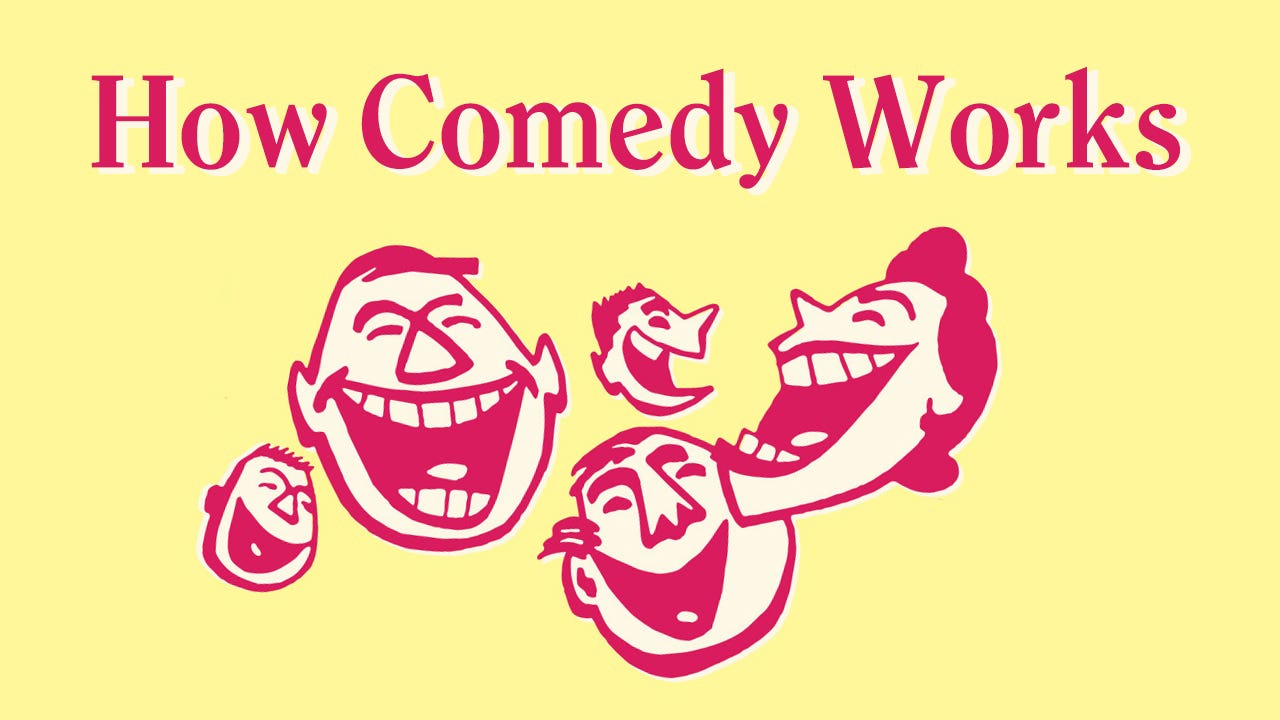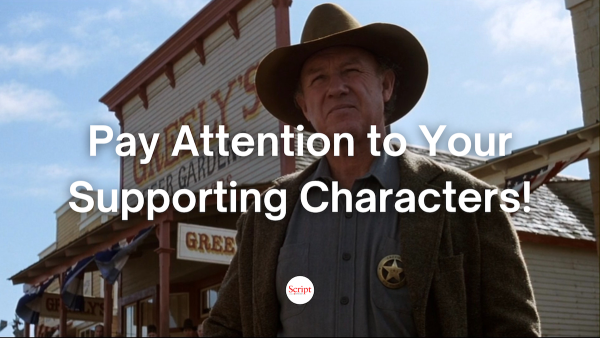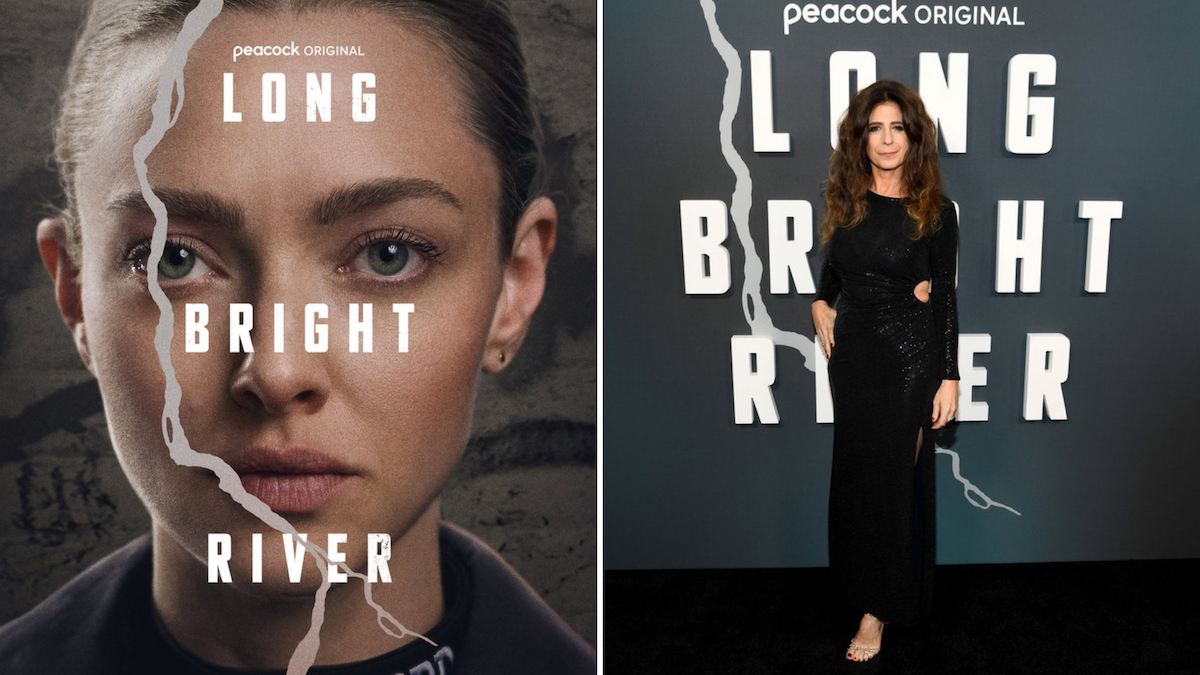Column D: First Day, First Show – Finding Great Movie Ideas
It’s been said that screenwriting is both an art and a craft. Interestingly, you can show incredible proficiency at the craft and still fail to succeed on a professional level….
It's been said that screenwriting is both an art and a craft. Interestingly, you can show incredible proficiency at the craft and still fail to succeed on a professional level. Why is that?
You might think I would answer that you have failed at the “art” portion. And to some degree that may be true. Plenty of screenplays fail to impress because they lack artistry. Art to me simply implies a personal, unique approach to craft. However, one can write with both proficiency and a unique style and still fail to sell their script (although they may get hired to write a script on open assignment).
I think most screenplays fail not because of craft or art. They fail because the “idea” is neither big enough nor commercial enough for a studio to invest $80-100 million dollars in it. Today in Hollywood, the idea is king. It's as simple as that.
So how does one come up with a “a big enough idea” for a movie?
I wish I knew.
One thing I can tell you is how I think you should judge the strength of your idea before you start investing the time and effort into writing it. It pains me to admit that his simple measure came to me in somewhat embarrassing fashion.
I once wrote a spec that I liked a great deal. I loved the characters, the set-up, all the required story beats and, especially, the ending. The script was optioned once, but it went nowhere.
One day, when asked to describe it to someone, I said "it would make a great rental some day." The words were no sooner out of my mouth when I realized the problem with the script.
We all have lower expectations for so-called "rentals." Hell, if we wanted to see the movie that bad, we would have gone to the theater, right? Rentals don't need to be great, so long as they have some entertainment value. By categorizing my script in that way, I was essentially telling the person who asked that it wasn't good enough for the theater. For a rainy weekday night at home with some pizza and beer, it would do fine. But a trip to the theater? Not so much. What a dope I was.
From that day on, I established my new standard. And beginning somewhere about ten years ago, I started instructing my students how to evaluate any idea they came up with for my class: Write the movie they would want go to see on the day it opened, the first showing.
Think about that for a second. It implies that you cannot wait to see it. The "idea" is so unique and tantalizing that it's well worth getting up off the couch and driving, walking, or taking the subway to go see it in a big dark room full of strangers.
Surely, you've gone to see movies on opening day. You've probably gone to the first showing in many instances. Why? In most instances (assuming it was a new film and not part of a franchise), I would argue that it was the idea behind it.
Now it may just be that in the past you might have gone to a film on the first day, first showing because you liked Tom Hanks. Or Johnny Depp. Or whatever big star was in it. But more often than not these days, people don't make the decision to travel to the theater on actors alone. The days of a "star" opening a movie are pretty much over. (Just ask Will Smith.)
So how do you know if your idea will bring people to the theater on that first day? Well, for starters, it has to do it for you. Unless you're the proverbial odd duck with an obsession for collecting Hummels and thinks that a drama about someone searching for a rare Hummel is spine-tingling stuff, you’re probably like most of the movie-going crowd. If you really like your idea, chances are, so will they.
But just to test your own sanity and objectivity, I suggest you run your idea by a few close and trusted friends before deciding. Ask them to be honest. Then listen to their reaction. Remember the feeling you had when you first heard the idea for The Hangover? Wedding Crashers? 40 Year Old Virgin? That's the reaction you're looking for.
Nor can it be a fleeting love affair. Remember, you also have to love it enough that you're willing to spend the next six months to a year working on that idea, first turning it into a solid story and then a screenplay and then re-writing it multiple times. You have to stick with it through thick and thin. If you get bored with it, odds are everyone else will too.
I hear screenwriting teachers and gurus say to imagine the poster. It’s not bad advice. If you can picture the poster for your film idea, that’s certainly a head start. But that’s not the whole shebang. For instance, I can picture the poster for the Hummel hunter, but I doubt I’d ever want to see that movie. The poster is not the "idea." It's merely some marketing person's snapshot of the idea.
As I said earlier, I can’t tell you how to come up with one of these “ideas.” That's why predicting success in this business is so difficult. "Ideas" are floating around everywhere out there. Or more likely, "in" there – meaning inside you. What’s going to make one come out is anybody’s guess. Ideas can strike at the strangest time and in the strangest ways. Like a boy scout, you have to be prepared when one comes to you and immediately write it down before it vanishes into the ether.
Then, if you're lucky, maybe it will be what everyone wants to get off their couch and go see in the theater someday.
First day. First show.
Related Articles:
- How to Decide on the Best Possible Movie Ideas to Develop Into Screenplays
- Lousy Ideas; Great Movies
- Breaking & Entering: 100 Reasons to Say No
- Building the World of Your Screenplay: The First 10 Pages
~~~~~~~~~~~~~~~~~~~~~~~~~~~~~~~~~~~~
Don't miss Drew's webinar From Idea to Story to Screenplay via The Writers Store
REGISTER NOW
From Idea to Story to Screenplay
At a Glance:
- This live webinar will guide you through the evolutionary path of: original idea…to story…to the first draft of your screenplay!
- Learn a reliable process for writing the first draft of your screenplay and for identifying problem areas when rewriting your first draft
- Screenwriters at all stages of development will benefit from taking this course
Drew Yanno began writing for film in 1993 and has been a member of the WGA since 1995 when he sold his script No Safe Haven to Universal Studios after a six hour bidding war. In 2000, Drew founded the screenwriting program in the Film Studies department at Boston College where he taught for eleven years. He is the author of The Third Act: Writing a Great Ending to Your Screenplay. His second book Idea to Story to Screenplay: a Workbook For Writing the First Draft of Your Screenplay is now available as a Kindle e-book on Amazon. Drew’s first novel In the Matter of Michael Vogel was released in March 2013 and was named one of the best Kindle Books of 2013 by Digital Book Today. In addition to writing and teaching, Drew also worked as a script consultant and served as an adviser to actor and producer Will Smith on a number of projects. Prior to becoming a screenwriter and screenwriting professor, Drew was a practicing attorney and taught law in the Carroll School of Management at Boston College. Follow Drew on Twitter @drewyanno.







